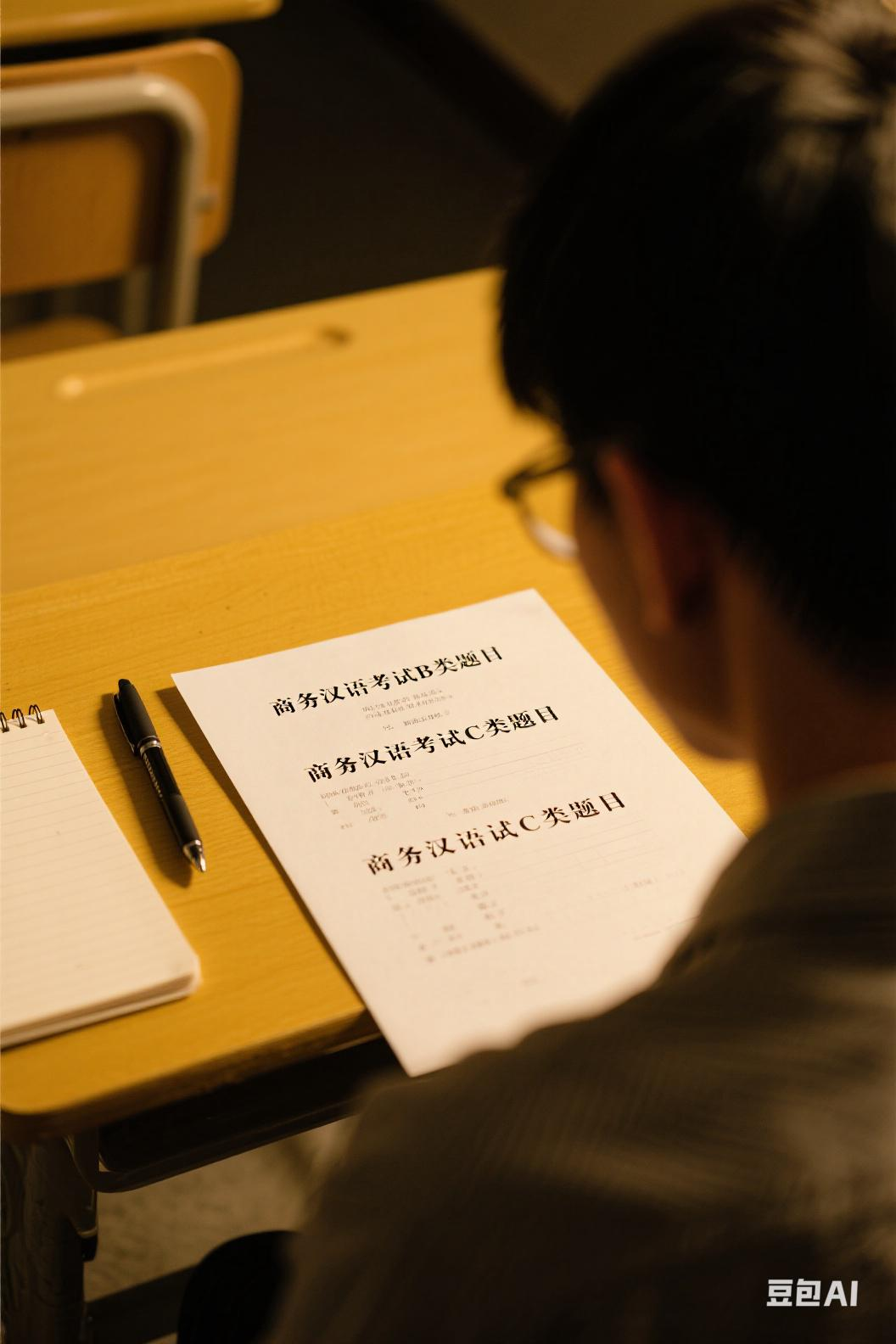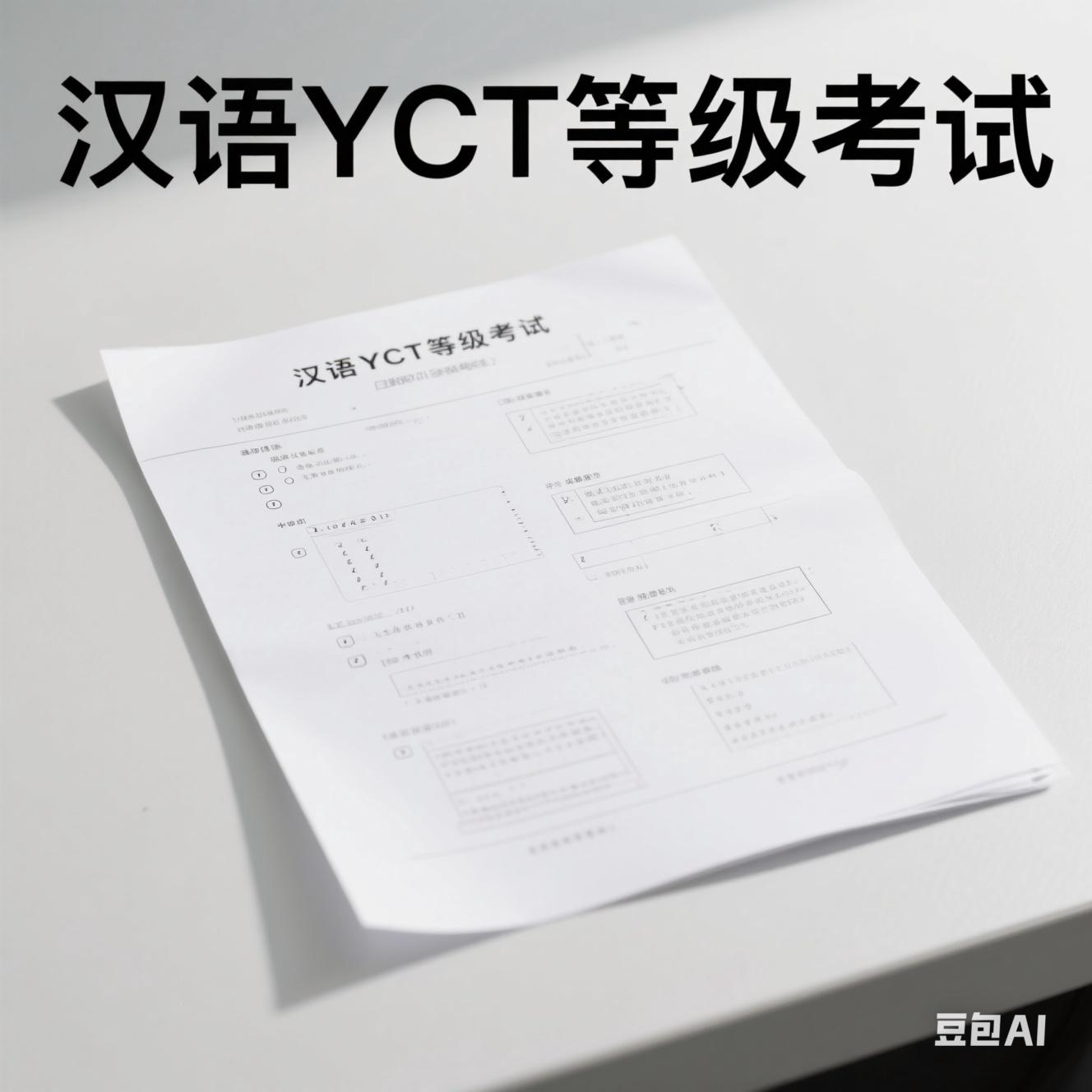

务汉语考试(Business Chinese Test,简称 BCT)是专为评价母语非汉语者在商务领域中汉语运用能力而设计的国家级标准化考试。其等级划分主要依据考生在商务场景中的语言应用能力,分为 基础级、进阶级 和 高阶级 三个层级,每个层级对应不同的商务沟通需求和语言复杂度。以下是具体划分方式:
一、基础级(BCT Level 1)
能力描述:
能在简单的商务场景中进行基本沟通,理解并使用常见的商务词汇和短句,完成日常事务性工作。
适用场景:
基础商务问候、自我介绍、简单询价与回应。
理解基础商务通知、便条、简单邮件。
进行日常办公中的基本交流(如预约会议、询问工作流程等)。
考试内容:
听力:日常商务场景中的简短对话(如接待、订餐、购物等)。
阅读:简单的商务公告、表格信息、商品说明等。
写作:填写表格、撰写简短留言或通知。
二、进阶级(BCT Level 2)
能力描述:
能在一般性商务活动中进行有效沟通,处理常见商务事务,理解中等难度的商务材料,并能进行连贯的口头和书面表达。
适用场景:
商务谈判、产品介绍、市场调研沟通。
阅读商务报告、合同条款、市场分析资料。
撰写商务邮件、会议纪要、产品推广文案等。
考试内容:
听力:商务会议、谈判对话、行业讲座等中等长度的音频材料。
阅读:商务合同摘要、市场分析报告、企业宣传资料等。
写作:根据提示撰写商务信函、投诉信、合作意向书等。
三、高阶级(BCT Level 3)
能力描述:
能在复杂商务环境中熟练运用汉语,精准理解专业商务内容,进行深度沟通和策略性表达,适应高层商务决策和跨文化管理需求。
适用场景:
高层商务谈判、行业论坛演讲、政策解读与分析。
阅读专业财经报道、学术性行业研究报告。
撰写高层战略报告、投资分析方案、企业发展规划等。
考试内容:
听力:专业商务研讨会、国际论坛发言、高层访谈等长篇音频。
阅读:财经新闻深度报道、法律文件、跨国企业年度报告等。
写作:根据复杂商务情境撰写建议书、可行性研究报告、商务演讲稿等。
补充说明:
1. 评分标准:
BCT考试采用量化评分,每个等级对应不同的分数区间(如基础级满分100分,60分以上合格;进阶级和高阶级满分均为100分,合格线可能更高)。
2. 考试特点:
聚焦商务场景,强调语言的实用性和专业性。
与HSK(通用汉语水平考试)互补,HSK侧重日常和学术汉语,BCT侧重商务领域。
3. 适用人群:
从事或计划从事商务活动的非汉语母语者(如跨国企业员工、商务人士、留学生等)。

YCT(Youth Chinese Test )--中小学生汉语考试
中小学生汉语考试(YCT)是一项国际汉语能力标准化考试,旨在考查汉语非第一语言的中小学生在日常生活和学习中运用汉语的能力,帮助他们增强学习汉语的自信心和成就感 ,遵循“考教结合”的原则,与国际中小学生汉语教学现状、使用教材紧密结合,实现“以考促教”“以考促学”。
一、等级设定:YCT考试分为笔试和口试两部分,且二者相互独立。笔试包括YCT(一级)、YCT(二级)、YCT(三级)和YCT(四级);口试包括YCT(初级)和YCT(中级)。
1.YCT一级:主要面向按每周2-3课时进度学习汉语3个月,掌握80个最常用词语和相关语法知识的中小学生。通过该级别的考生,可以理解并使用最常用的汉语词语和句子,具备进一步学习汉语的能力。
2.YCT二级:主要面向按每周2-3课时进度学习汉语一个学期(半学年),掌握150个最常用词语和相关语法知识的中小学生。通过者可以理解并使用一些非常简单的汉语词语和句子,满足具体的交际需求。
3.YCT三级:主要面向按每周2-3课时进度学习汉语两个学期(一学年),掌握300个最常用词语和相关语法知识的中小学生。通过者可以用汉语就熟悉的日常话题进行简单而直接的交流,达到初级汉语优等水平。
4.YCT四级:主要面向按每周2-3课时进度学习汉语两个学期以上,掌握600个常用词语和相关语法知识的中小学生。通过者可以运用汉语完成生活、学习中的基本交际任务,在中国旅游时,可应对遇到的大部分交际任务 。
5.YCT口试初级:主要面向按每周2-3课时进度学习汉语一到两个学期,掌握200个左右最常用词语和相关语法知识的中小学生。通过者可以听懂并用汉语口头表达较为熟悉的日常话题,满足基本交际需求。
6.YCT口试中级:主要面向按每周2-3课时进度学习汉语两个学期以上,掌握400个左右最常用词语和相关语法知识的中小学生。通过者可以听懂并用汉语与汉语为母语者进行简单的口头交流。
二、考试内容与形式:
笔试:采用纸笔考试形式,全部考试约50分钟(含考生填写个人信息时间5分钟) 。
一级:听力部分约15分钟,共20题,分四部分,以选择题和判断题为主,考查对简单词语、短语和短句的听辨理解;阅读部分约25分钟,共20题,同样分四部分,以选择题和判断题为主,考查对常用汉字、词语和简单句子的认读理解 。
二级:听力部分约15分钟,共20题,四个部分均通过听内容来判断对错或选择答案,考查对稍复杂短语、句子的理解;阅读部分约27分钟,共20题,通过不同题型考查对150个左右词汇及简单短文的理解 。
三级:听力约20分钟,共30题,题型包含听后选择、听后判断等,考查对日常对话和短文的理解;阅读约30分钟,共30题,涵盖多种题型,考查对300个左右词汇及篇幅更长、内容更丰富文本的理解;写作约25分钟,共10题,有填空、造句、看图写短文等题型,考查对词汇、语法的运用及简单书面表达能力 。
- 四级:听力约25分钟,共30题,涉及不同场景的对话和短文,考查对较复杂内容的理解;阅读约35分钟,共30题,文本难度增加,考查对600个左右词汇及复杂文章的理解;写作约30分钟,共10题,包括完成句子、写短文等,考查更复杂的书面表达能力 。
口试:采用现场录音或计算机考试形式。
初级:约17分钟,共25题。有朗读词语、句子,根据图片或提示回答问题,简短对话等题型,考查基本的语音语调、词汇运用和简单口语表达能力 。
中级:约19分钟,共14题。包括朗读短文,针对给定话题发表看法,情景对话等,考查更流利、连贯的口语表达及观点阐述能力 。
三、评分标准:
笔试:每道题答对得分,答错不扣分,总分为各部分得分之和 。各级别笔试满分均为100分,60分为合格 。成绩报告上会显示听力、阅读、写作(三级和四级)的单项成绩和总成绩 。
口试:由专业考官依据考生的语音语调准确性、词汇语法正确性、表达流利度、内容完整性和逻辑性等方面进行综合评分 。口试初级和中级满分均为100分,60分为合格 。成绩报告上会呈现综合评价和成绩等级 。
四、考试时间安排
YCT考试一般每年举办多次,具体考试日期由汉考国际官方提前公布 。例如2025年安排了多场考试,考生可根据自身情况选择合适场次报名 。通常报名时间会在考试前一段时间截止 ,如2025年2月3日考试的报名截止日期为1月7日 。建议考生密切关注汉考国际官网(http://www.chinesetest.cn/)获取最新考试时间和报名信息。